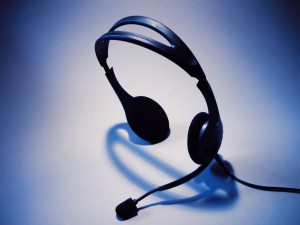 As many of our readers are aware, the Telephone Consumer Protection Act (“TCPA”) regulates unsolicited telemarketing calls, texts and faxes utilizing autodialers or pre-recorded messages, and has been the basis for several high profile class action lawsuits. Despite the multi-million dollar settlements resulting from TCPA violations, there may finally be some good news for telemarketers.
As many of our readers are aware, the Telephone Consumer Protection Act (“TCPA”) regulates unsolicited telemarketing calls, texts and faxes utilizing autodialers or pre-recorded messages, and has been the basis for several high profile class action lawsuits. Despite the multi-million dollar settlements resulting from TCPA violations, there may finally be some good news for telemarketers.
What is an Autodialer under the TCPA?
As previously described on this blog, the Federal Communication Commission (“FCC”) and courts across the country have taken a very broad stance on the definition of an autodialer, namely any device that has the capacity to produce, store and call telephone numbers using a random or sequential number generator. Based on the huge settlements and penalties being levied against telemarketers under the TCPA, we have advised our clients to broadly construe the definition of autodialer to avoid unwanted litigation and regulatory action. For instance, if you are utilizing any type of call center software as part of your telemarketing operations, you may be using an autodialer within the FCC’s definition. However, it seems that there may now be a trend to rein-in the expansive definition of autodialer.
Recent Court Cases Limit Definition of Autodialer
While it is still a best practice to broadly construe the definition of “autodialer” under the TCPA, the U.S. District Court for the Northern District of Alabama and the Superior Court of California have taken consistent views to limit the definition of autodialer under the TCPA.
In the Alabama case, the court ruled that “to meet the TCPA definition of an “automatic telephone dialing system,” a system must have a present capacity, at the time the calls were being made, to store or produce and call numbers from a number generator.” The court made clear that while a telephone dialing system may be modified to make autodialed calls, only the present state of the dialing system should be considered under the TCPA. Soon after the Alabama ruling was handed down, a California State court followed suit, ruling that in order to fall within the TCPA definition of an autodialer, “the use of a number generator is required.” Because the plaintiff failed to present any evidence that the defendant was using automated dialing technology at the time of the alleged TCPA violation, the TCPA claim was dismissed.
Thus, the Alabama federal court and California State court agree that merely having the capacity to produce, store and call telephone numbers is not enough under the TCPA. Instead, in order to prevail under the TCPA, a plaintiff must show that, at the time of the alleged violation, the telemarketer’s equipment had the present capacity to use a random or sequential number generator.
Both of these cases are sure to be hotly contested in the coming months and should be of interest to anyone engaging in telemarketing campaigns. If you are interested in learning more about this topic or need to review your telemarketing practices, please e-mail us at info@kleinmoynihan.com, or call us at (212) 246-0900.
The material contained herein is provided for informational purposes only and is not legal advice, nor is it a substitute for obtaining legal advice from an attorney. Each situation is unique, and you should not act or rely on any information contained herein without seeking the advice of an experienced attorney.
Attorney Advertising



